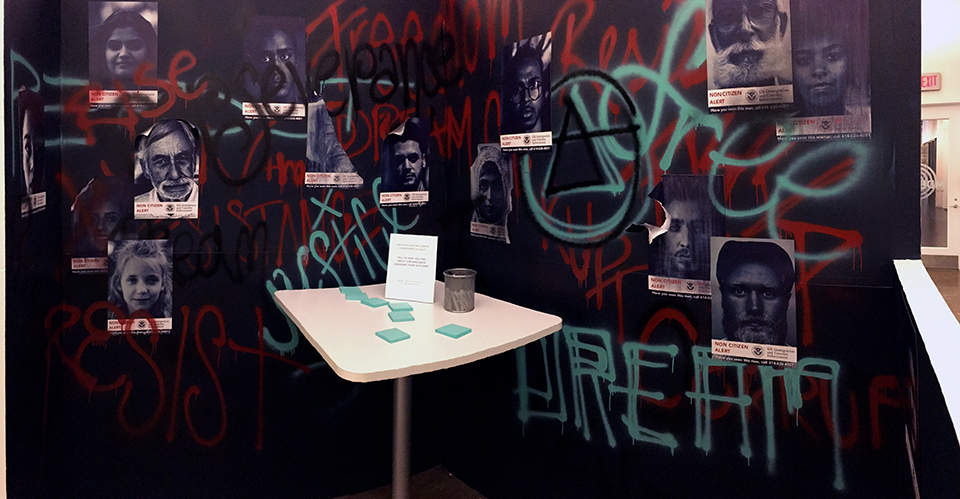
CCAD MDes candidates are ready for the future
In 2016, Columbus successfully competed against 77 cities across the country to win the US Department of Transportation’s Smart City Challenge aimed at bettering the population’s quality of life, driving economic growth, and much more by improving residents’ mobility.
Not long after, candidates from Columbus College of Art & Design’s Master of Design in Integrative Design program explored how the $50 million Smart Cities grant could impact the community. Working closely with Dan Rockwell of web and app developer Big Kitty Labs, the candidates used systems thinking, future thinking, and speculative design approaches to create a narrative of what the future—specifically, 2050—could look like, particularly in light of current technologies’ focus on the Internet of Things. Their goal: for the people of today to reflect on how human innovation can help or destroy the simple things in life, from relationships and communities to morals and ideologies.
In the end, Rockwell had this to say:
“This is more than I ever imagined, I was not expecting this. You all did an incredible job.”
Here’s some more info about the project.
The process
The MDes candidates’ research for this project included building an initial mind map identifying the systems in which humans interact with “smart” cities, exploring who controls such systems (and what happens if people do not follow or use the systems), and the rules that drive these systems. They also identified stakeholders through conversations with professionals in fields such as law, health care, augmented reality/virtual reality, city government, and risk analysis, as well as those who will be populating the cities of the future—people age 18 or younger.
The vision
The world the MDes candidates envisioned was a grim one in which World War III has drastically decreased populations; children are engineered and educated by the government, with careers dictated before birth; and pre-war citizens have begun replacing body parts with engineered synthetic limbs and 3D printed organs to keep up with the new and perfect engineered citizens.
Through working with Rockwell, the MDes candidates arrived at the following questions to explore and inform the artifacts they created for their project, “Citizens of 2050”:
- “What if technological advancements aimed at providing a better life, inadvertently cause the latest form of ‘othering?’” Shielaugh Divelbiss (Illustration, 2003; MDes, 2019) built a smart wall to the city of the future that decides citizenship with a biometric scan. A person is scanned and then sent through a citizen or non-citizen door depending on the answer. Once inside participants are asked to consider how unconscious basis may be influencing decisions, and leave feedback as part of the exhibit.

- “As we keep modifying the body, how are we going to identify citizens?” Weeraya Jirawongwaris (MDes, 2019) created a new type of identification that no longer relies on physical characteristics. Accompanying the identification were digital paintings depicting body modifications in the future.
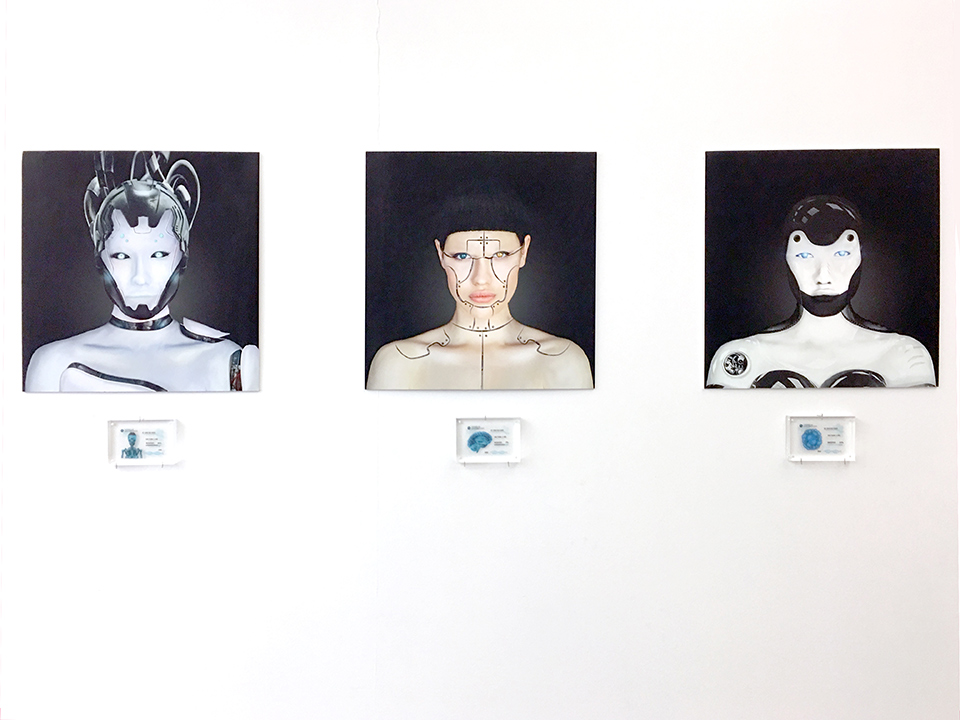
- “What if your First Amendment rights are autocorrected to be aligned with social norms?” Kendra Rabineau (MDes, 2019) created a face mask worn by all the citizens of the future to censor their speech. Her accompanying illustrative backdrop showed all citizens wearing the device in their daily life, reinforcing for the audience the dark implications of this device on society.
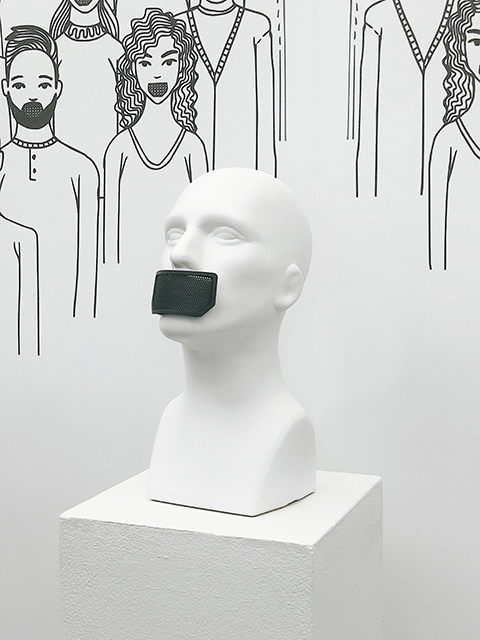
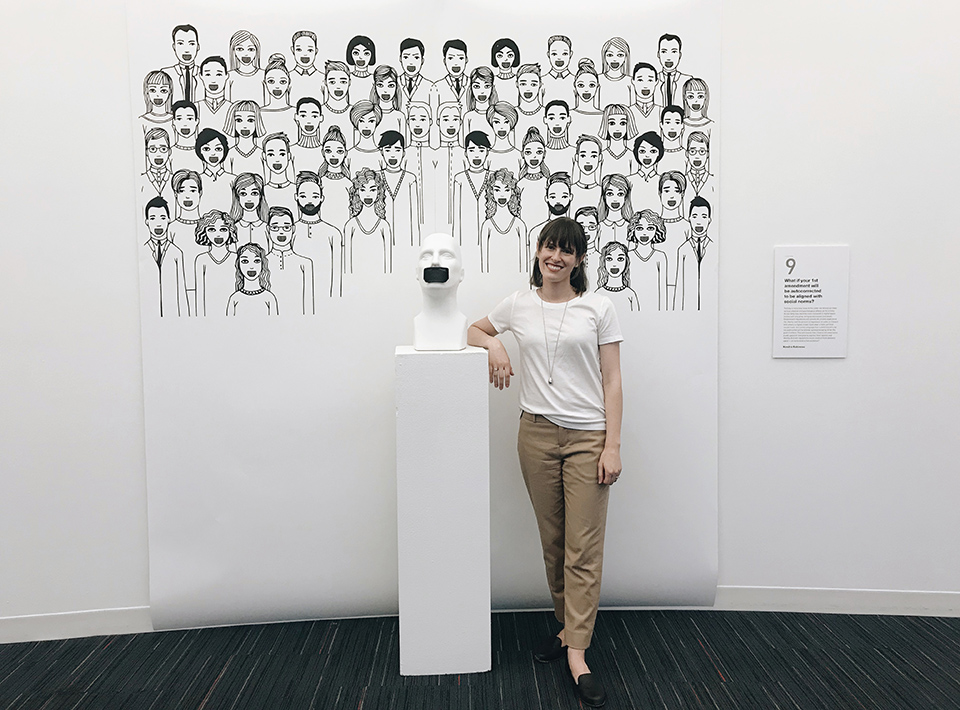
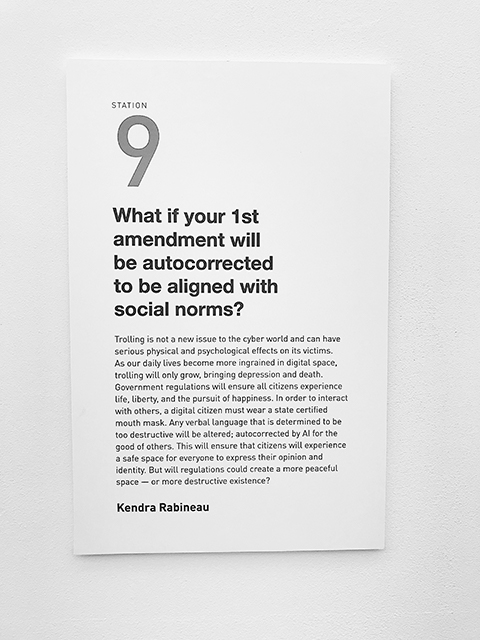
Supported in their efforts were a team of undergraduate students who helped bring new perspectives to the MDes candidates’ efforts and provided technical skills for building, planning, and displaying their work. They included: Shiya Tong (Industrial Design, 2019), Matthew Erdmann (Industrial Design, 2021), Hannah Strack (Advertising & Graphic Design, 2019), Jonathan Hockaday (Industrial Design, 2019), and Rachel Turnwald (Industrial Design, 2019). Paul Tenwalde (Master of Fine Arts, 2018) also provided support to the MDes candidates.
Learn more about CCAD's Corporate and Community Projects or apply here.
Post date
July 10, 2019